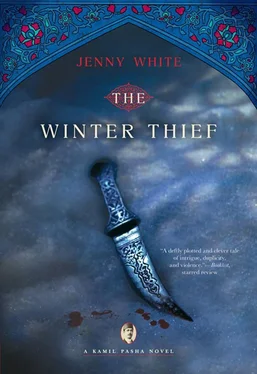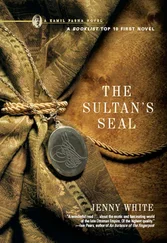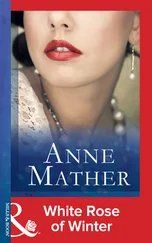Jenny White - The Winter Thief
Здесь есть возможность читать онлайн «Jenny White - The Winter Thief» весь текст электронной книги совершенно бесплатно (целиком полную версию без сокращений). В некоторых случаях можно слушать аудио, скачать через торрент в формате fb2 и присутствует краткое содержание. Жанр: Исторический детектив, на английском языке. Описание произведения, (предисловие) а так же отзывы посетителей доступны на портале библиотеки ЛибКат.
- Название:The Winter Thief
- Автор:
- Жанр:
- Год:неизвестен
- ISBN:нет данных
- Рейтинг книги:5 / 5. Голосов: 1
-
Избранное:Добавить в избранное
- Отзывы:
-
Ваша оценка:
- 100
- 1
- 2
- 3
- 4
- 5
The Winter Thief: краткое содержание, описание и аннотация
Предлагаем к чтению аннотацию, описание, краткое содержание или предисловие (зависит от того, что написал сам автор книги «The Winter Thief»). Если вы не нашли необходимую информацию о книге — напишите в комментариях, мы постараемся отыскать её.
The Winter Thief — читать онлайн бесплатно полную книгу (весь текст) целиком
Ниже представлен текст книги, разбитый по страницам. Система сохранения места последней прочитанной страницы, позволяет с удобством читать онлайн бесплатно книгу «The Winter Thief», без необходимости каждый раз заново искать на чём Вы остановились. Поставьте закладку, и сможете в любой момент перейти на страницу, на которой закончили чтение.
Интервал:
Закладка:
He found Elif lying on her back beside the stream. Her eyes were open, and for a heart-stopping moment he thought she was dead. But she smiled up at him, and he found that he hungered for her as badly as he had ever wanted anything. Her face and hands and clothes were entirely covered in blood, as if she had bathed in it. The bare branches of a willow tree formed a yellow cage around them, letting in the sun. Kamil knelt beside her and, sliding his hand behind her head, leaned over and kissed her. He tasted iron, and his lips clung to hers through the stickiness of someone else’s blood.
“Come on,” he said, indicating the stream that sparkled yellow and green in the sun.
She grinned, her teeth white in her red face. “Are you mad? We’ll freeze our hides off.”
“I could use a new hide,” Kamil answered, stripping off his clothes. He unbuttoned her shirt and slipped it over her head, then removed her trousers and her undergarments, remarkably white despite the mud and carnage. Hand in hand, they walked into the stream. It was fed by rapids upstream and swollen with snowmelt, deep enough for them to walk in up to the waist. The water buffeted them and pulled them off balance. Holding hands to steady themselves, they squatted and dipped their heads under the rushing torrent. Despite the sun on their backs, the water was freezing cold, so they didn’t remain long.
By the time they got back to the willow, Elif was shaking. Kamil rubbed her body with his wool undershirt until her skin glowed. Then they pulled on their clothes, still dirty and stiff with blood. Their eyes met for the first time since Kamil had found her under the willow. He felt as though he were looking into a deep, clear pool. He had no more understanding of what kind of woman Elif was, but he felt somehow that they understood each other. He was no longer sure he understood what kind of man he was.
When they returned to the monastery, they found Levon raging over the bodies of his children. It was as if now that the danger was over, all of the powerful man’s reserve had broken like a dam under a flood. Kamil wished he could tell Levon that his children had been avenged, but he knew that was a meaningless statement. The dead are not less dead when they are multiplied.
Levon saw Kamil. “Welcome, oh representative of the sultan. Take a look at what you have brought us.” He threw out his hand to indicate the sea of wounded men and women lying on the flagstones of the hall.
Kamil walked toward Levon. “To all of you,” he said loudly, “may you be well. I’m sorry about the loss of your families. I came here to investigate this community. Clearly I wasn’t here to kill anyone. Or did you not notice that I was inside the walls, not out there with the Kurds?”
Levon aimed his rifle at Kamil. “One more dead body won’t be noticed,” he snarled.
The room froze. Kamil heard the click of a cane and looked down to see Siranoush Ana standing between him and the barrel of Levon’s gun.
“We’ve all lost more than we can bear, Levon,” she said in an even voice.
Levon slowly lowered his gun and nodded. “We want these people out of our valley.” He flung his hand at the hall. “Right now,” he bellowed.
“These are mostly your people,” Kamil pointed out.
“I mean the socialists, the Henchaks, whatever they are,” Levon answered wearily. “No, pasha, you’re right. We all have to leave. The villages have been destroyed, all the food looted, and those devils might return at any time. There’s nothing to go back to. And it is true that without this community’s guns, we wouldn’t have survived at all.” He nodded to Apollo and Vera. “Thank you,” he told them in Armenian. He hobbled from the room, shoulders bowed. Siranoush Ana watched him go, and Kamil saw tears in her eyes.
They spent a last night in the monastery. Kamil grabbed a quilt and stretched out on the floor. He was too exhausted to look for where Elif had bedded down. The sleep of the dead, he thought just before he fell into a profound slumber.
Sakat Ali crept through the monastery hall in the early hours. The fire had died out. No one was on duty this night after the battle to feed the flames, as on other nights. The hall was pitch black and cold. The guide knelt beside Kamil and looked down at his dreaming face. The man was smiling in his sleep, Sakat Ali realized. Akrep was going to pay him handsomely for killing the pasha, but he would enjoy it too. No man should be happy amid the misery of his fellows. It showed that the pasha had no honor and deserved to die.
With his good arm, Sakat Ali drew a knife from his sash. “You thought you won, didn’t you?” he whispered. He had followed Kamil out of the monastery and almost been discovered when that fool Omar arrived. But Sakat Ali was clever and remained undiscovered, even after the pasha had shot the Akrep commander without provocation.
Killing Kamil now would be nothing more than executing a treasonous murderer. That is, if Vahid had died.
90
They finished burying their dead, including Yedo and five of his cousins. The body of Sakat Ali had been found that morning in the stable, his throat apparently cut by his own knife, still clutched in his hand.
Omar told Kamil that he had heard Sakat Ali approach him in the night. “I took him outside for a little talk before he said good night. As we suspected, he was an Akrep agent. He followed you to Karakaya and saw you shoot Vahid.” Omar looked at Kamil appreciatively. “At first he thought Vahid was dead, but regrettably he wasn’t. Looks like you blew off part of his right hand, though. Our spy fixed his boss up and hired someone to take him to Trabzon, then came back here to kill you. And that was his last assignment.”
“Thank you.” Kamil found the words inadequate for the immensity of saving his life.
“Vahid might die on the way, but I don’t see it. The devil has a thousand lives.”
A priest from among the refugees said a prayer for the dead. Vera placed a bouquet of meadow hyacinths on Gabriel’s grave, one of a long row marked only with piles of stones. Then they focused on organizing the living.
Kamil set out at the head of the column of close to two hundred frightened and desperate men, women, and children who had no homes to return to. They passed the Kurdish corpses by the side of the road. Mothers hid their children’s faces in their skirts.
Rapids from the early-spring melt had made the river unnavigable and cut off the road to Rize on the coast, closer to them than Trabzon. Levon and his men rode ahead of the train of refugees, checking the road and forest for ambushes and foraging for food and supplies to feed the mass of fleeing people who had once been their neighbors. Omar and the remaining soldiers brought up the rear, making sure no one was left behind. In this manner, they plodded through the mountains. Kamil sent one of his men ahead to alert the governor of Trabzon that they would need food and shelter when they arrived. He wondered whether Vahid had arrived alive or whether they would pass his carcass on the road.
The road followed the river until the flat land gave out and they were forced to climb the hills along narrow paths, passing through ravaged villages blazing with rare yellow rhododendrons. Their numbers swelled as they moved through the valley and survivors from isolated communities joined the refugees. Most of them either had relatives in Trabzon or wished to escape the province on one of the ships in the harbor.
The journey to Trabzon was long and miserable. Although the end of March, it was still winter in the mountains. Winds ripped through the gorges, and clouds settled so low that they drenched the skin. Days were warm as long as the sun shone, but then they were plagued by swarms of biting insects. At night the temperature plummeted, and people built small fires or dug themselves into the forest loam for warmth. Children whimpered in fear as wolves howled and jackals yipped on the hillsides. Levon’s men occasionally brought sacks of clothing and boots that they distributed. Kamil assumed they had gathered them from abandoned villages along the way. There was no sign of the Kurds. Were they not willing to fight without Vahid?
Читать дальшеИнтервал:
Закладка:
Похожие книги на «The Winter Thief»
Представляем Вашему вниманию похожие книги на «The Winter Thief» списком для выбора. Мы отобрали схожую по названию и смыслу литературу в надежде предоставить читателям больше вариантов отыскать новые, интересные, ещё непрочитанные произведения.
Обсуждение, отзывы о книге «The Winter Thief» и просто собственные мнения читателей. Оставьте ваши комментарии, напишите, что Вы думаете о произведении, его смысле или главных героях. Укажите что конкретно понравилось, а что нет, и почему Вы так считаете.












